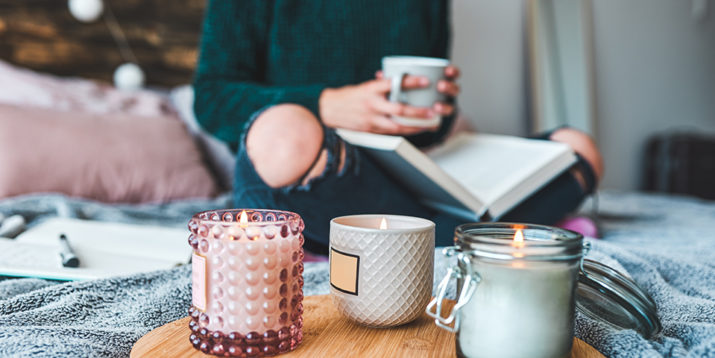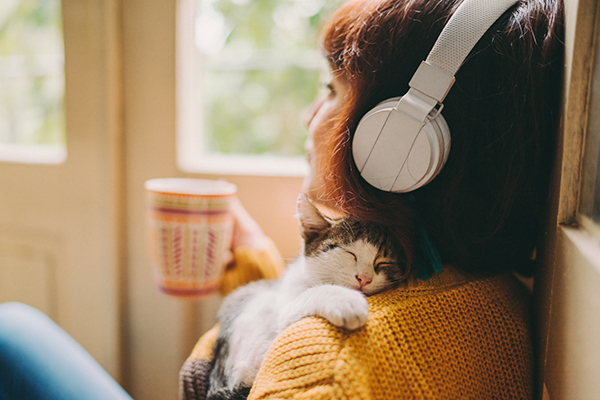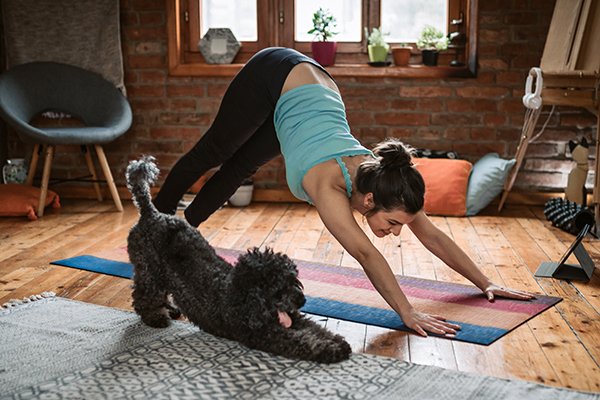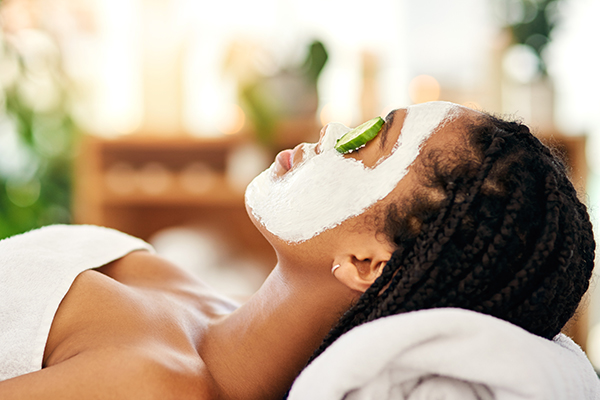20 Ideas to Create a Self-Care Routine

Establishing a daily self-care routine is one of the best gifts you can give yourself.
Self-care isn’t frivolous, and it includes any activity we do to care for our physical, emotional, spiritual, and/or psychological health.
“Have you heard the phrase, ‘you can’t pour from an empty cup’?” asks Annalisa Smithson, M.A., MEd, a counselor based in Pennsylvania. “Self-care is important because it keeps our cup full. Most of us want to take care of our families, succeed at work, and look and feel great. A consistent self-care routine is the key to achieving all that.”
Here are 20 simple yet effective ways to establish a self-care routine to help you live a long, healthy, and happy life. Choose a couple from each category and create a self-care routine checklist for yourself.
Emotional Self-Care Routine Ideas

1. Focus on relaxation
Relaxation has a slew of benefits, from stress, tension, and chronic pain reduction to lowering blood pressure and even boosting confidence.
Try different kinds of relaxation techniques to find what works for you, such as:
- Yoga
- Long, warm bath
- Listening to music
- Tai chi
- Deep breathing
2. Be social
Connecting with loved ones is crucial to emotional well-being. Get together with friends or co-workers on Zoom or FaceTime for a happy hour, or spend quality time with your family IRL if it’s possible.
It’s important to make sure you’re nurturing your emotional connections.
3. Connect with nature
Research shows that spending time in nature has positive emotional benefits, like better mood and focus and increased energy.
“And exposure to sunlight is important for our bodies to be able to absorb vitamin D, a nutrient that is critical to our health,” says Asher Adelman, FNTP, CEO of Life Health and Wellness Center.
Find a nearby trail and go on a hike, spend an hour walking at the beach, or even just take a long walk around your neighborhood to combine exercise and rejuvenation.
4. Take breaks
Burnout is real, whether it’s due to work-related stress or simply not allowing your mind and body to rest properly. That’s why it’s crucial to take breaks.
Even a 10-minute walk around the block can help you feel more energized, but for a proper reset, try taking a weekend getaway to unplug or a little staycation.
Be sure to eliminate all work-related triggers, put away your phone and computer so you’re not tempted to check work emails and spend some QT with yourself.

5. Record your gratitude
Add a gratitude journal to your self-care night routine. Reminding yourself of your blessings can help you appreciate what you have.
In fact, giving thanks can even make you happier. Try writing down 10 things you’re grateful for every day, no matter how big or small.
Be specific, like:
- I’m so happy about the support my best friend showed me today.
- I loved sitting on the porch this morning by myself drinking an amazing cup of coffee.
- I’m grateful for my strong, powerful legs that make it possible for me to work out and get fit.
Psychological Self-Care Routine Ideas
6. Laugh daily
Studies show laughter can help reduce stress, improve your mood, and even ease pain. Laughter is the best medicine, after all, so make this part of your self-care day routine.
Check out comedy specials on Netflix and HBO, watch your favorite comedy series, or put on your favorite funny movie.
Now’s not the time to turn up your nose at funny cat videos on Instagram.
7. Journal
Journaling about your feelings can impact your mental health. Spend a few minutes every evening writing down some thoughts about the day, your fears, or your concerns. It may help get the negative energy out.
8. Talk to a pro
“Therapy can be very helpful for people to learn better communication and relaxation skills,” says Adelman. Therapy is a great self-care technique to work through the ups and downs of life.
Many therapists offer virtual sessions and sliding scale payments, especially right now.
9. Limit social media
While social media can keep us connected, studies show it can also lead to anxiety, depression, isolation, and FOMO, or fear of missing out.
Try limiting your social media time. Set aside 15 minutes to check Instagram twice a day, for example, or only look at Facebook after you finish a task.
You can also set app restrictions on your phone for extra help.
10. Set boundaries
Setting boundaries is so important, with others and with yourself. First, you’ll need to identify what your boundaries are, then identify how you will enforce them.
“Give yourself permission to say no to others’ demands,” says Smithson. “Say yes to your own needs and desires. And most importantly, learn to feel your feelings.”
Physical Self-Care Routine Ideas

11. Find movement you love
Exercise boosts overall well-being, but doing activities you hate is totally unnecessary. Not sure what appeals to you?
BODi has hundreds of workouts, from yoga and barre to HIIT and muscle-building programs. Experiment until you find your fave. After all, the best workout is the one you’ll actually do!
12. Prioritize rest
“Honor your body’s need for restful sleep,” says Smithson. It may seem obvious, but many people neglect their sleep or aren’t focusing on sleep quality. Getting enough and the right kind of deep sleep can improve your mood, focus, and energy.
Here are some ways to practice good sleep hygiene:
- Avoid large meals and stimulants (like alcohol, sugar, and caffeine) before bed.
- Put down screens about 2 hours before bedtime.
- Set up your bedroom for optimal sleep.
13. Plan healthy meals
Meal prepping is definitely an act of self-care since you save your future self time and energy. Plus, it’s a fun way to try new recipes and hone those cooking skills!
Set aside time to prepare healthy meals and snacks, and make it fun — put your favorite playlist one and pour yourself something fun to drink, like sparkling water.
14. Limit caffeine, sugar, and alcohol
Sometimes the things we love don’t love us back. Three to four cups of coffee is considered safe by the Food and Drug Administration (FDA), but excess caffeine can contribute to feelings of anxiousness and stress.
Keep in mind that everyone reacts to caffeine differently, so stick to one cup of coffee a day, or switch to decaf if that still feels like too much caffeine.
Alcohol can also impact sleep, mood, and your waistline, so cutting back or eliminating it is an act of self-care.
Cutting back on sugar can also be part of your self-care plan. Too much sugar can negatively affect your mood, and the calories can really add up.

15. Treat yourself
The right self-care products can entice you to make time for yourself. Here are some ideas to help you unwind and feel your best:
- Swaddle yourself in comfy, luxurious fabrics like cashmere and silk. A cashmere blanket is a splurge you’ll use often.
- DIY face masks are budget-friendly, all-natural skin treats.
- Breathe in calming essential oils (like lavender) using a diffuser. We love this one from Amazon that’s only $15.
Spiritual Self-Care Routine Ideas
16. Volunteer
Doing good for others is an instant mood-booster. Find a local cause you feel passionate about, whether that be animal rescue, helping kids, environmental aid, etc.
17. Perform random acts of kindness
Small acts of kindness go far, for both you and others. Here are some ideas:
- Offer to pick up groceries for an older neighbor.
- Leave an extra-large tip on a takeout order.
- Let someone pass you in traffic.
18. Practice meditation
“Meditation is a great tool for teaching the brain to relax and clear itself of stressful or negative thoughts,” says Adelman. Compassion meditation focuses on strengthening your care for others while simultaneously caring for yourself.
Even if you’ve never tried it, you can learn how to meditate every day.
19. Pray
For those who identify as religious or spiritual, connecting with your higher power through prayer is a wonderful self-care technique.
However, if you’re not particularly religious, you can still make this tip work for you.
“I find that my spiritual self is nurtured when I spend time with two of my close friends who welcome deep conversation about our beliefs,” says Smithson. “We don’t even share the same religion, but we have an authentic connection that helps me practice spiritual self-care.”
20. Give what you can
No matter how big or small, every little bit helps when donating to charities, local businesses, and organizations you care about. Find ones that speak to you and give what you can.
